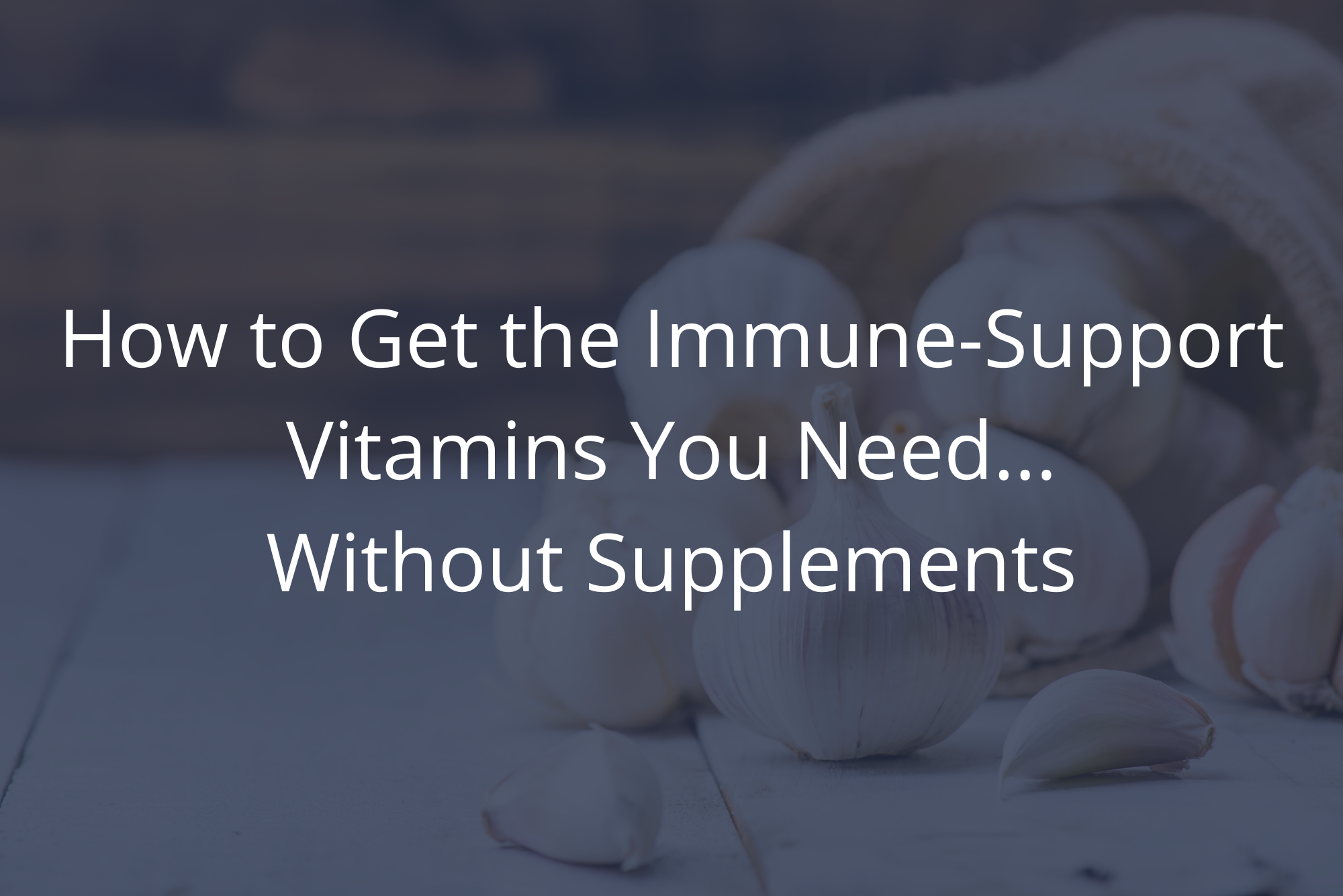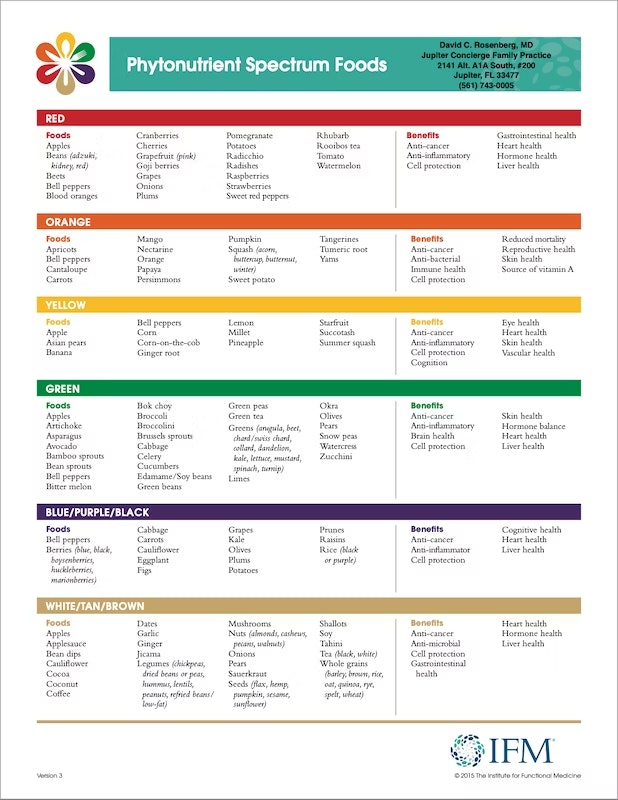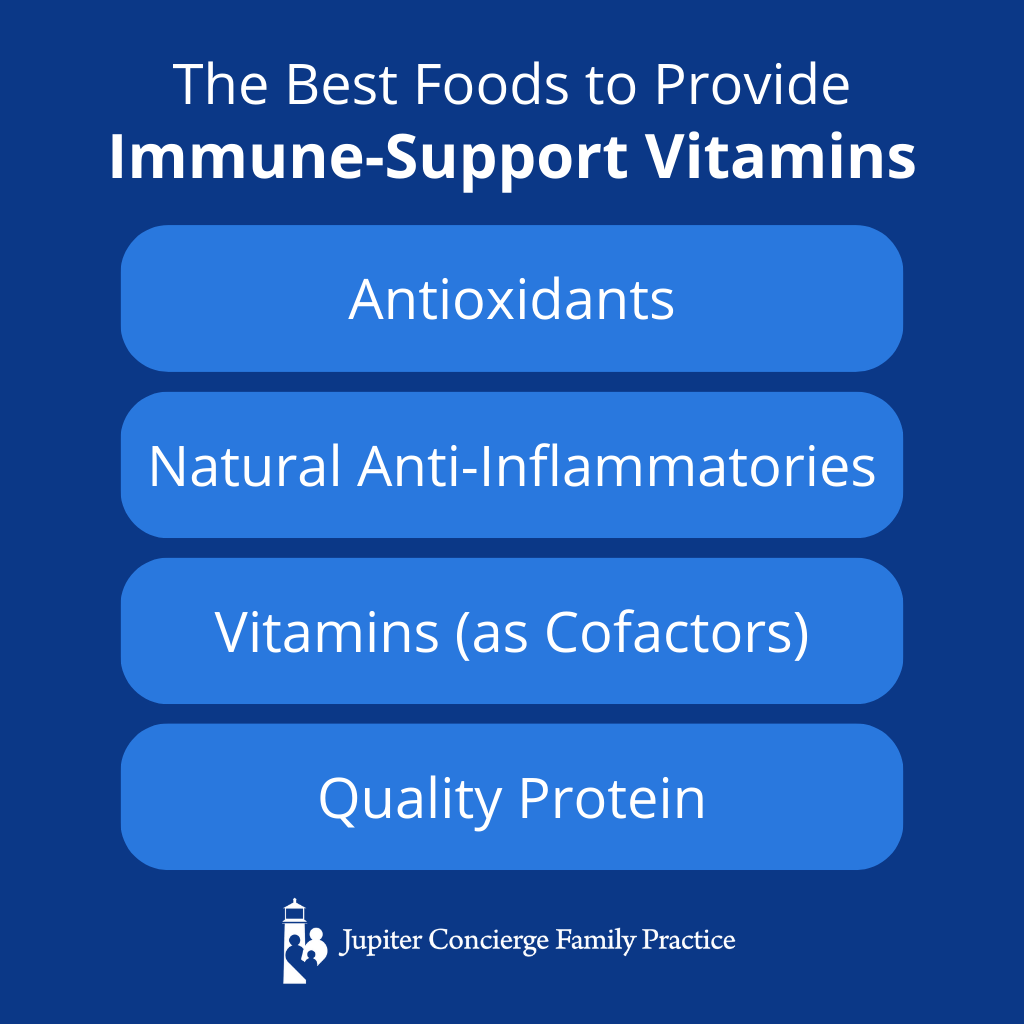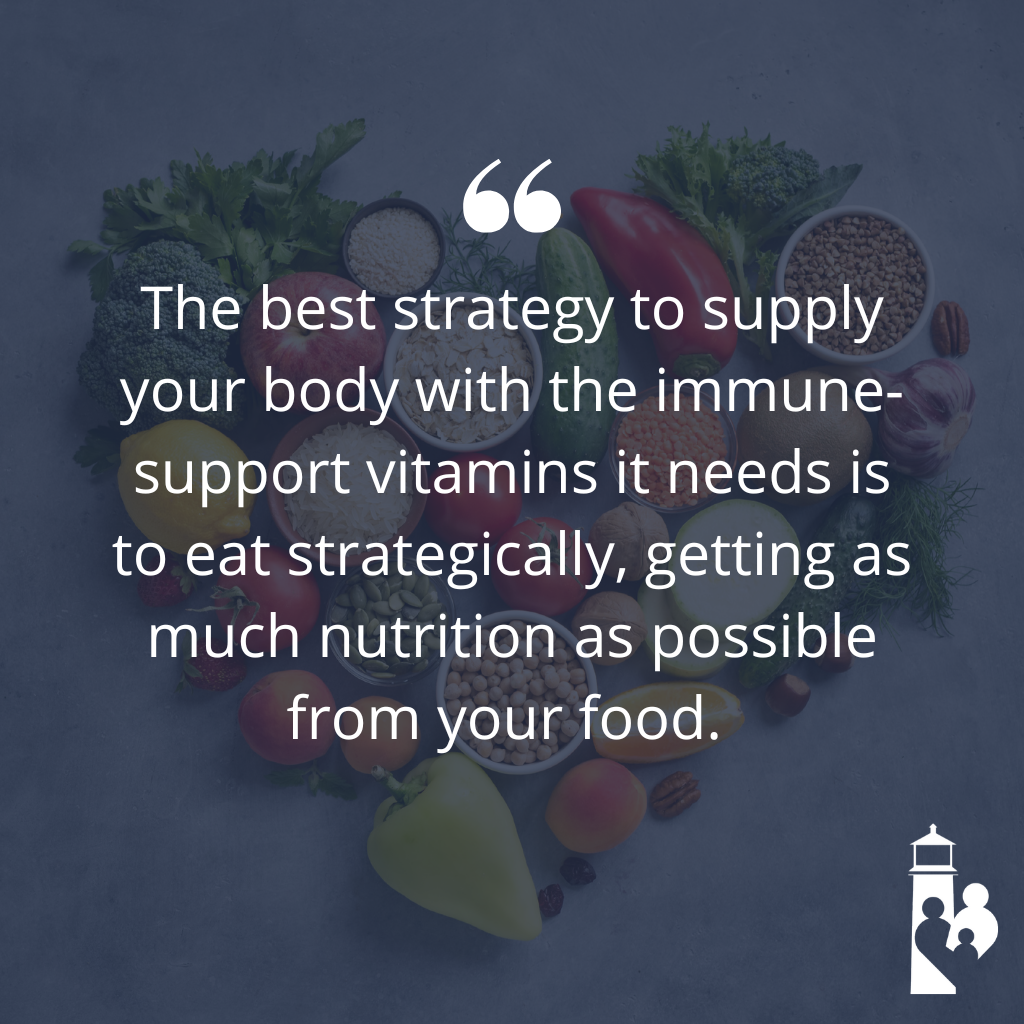
Most of us know that our immune system is a big deal. It is, in fact, one of the few things that actually lives up to its hype.
The human immune system is a marvel. It’s an innate, unconscious apparatus of bodily protection that’s with us from the time we’re born. As we grow and encounter new threats, it also grows and develops its ability to protect us from those threats. It’s our body’s standing army, ready to mount a military-style defense against the invaders that challenge our survival.
As of late, supporting the immune system has taken on a higher priority for many people. And because our immune system, like any system in the body, needs the proper nutrients to function optimally, taking immune-support vitamins has become a popular pastime.
But are pills and powders the best nutrient supply lines for our immune function?
Why Immune-Support Vitamins Became Popular
There’s no denying that modern methods of farming and food processing provide us with fewer nutrient-dense foods than our forebears consumed. Add to that the deficiencies of the standard American diet, and you have a recipe for nutrient-deprived immune systems.
In such circumstances, it’s no wonder people reach for immune-support vitamins. They’re convenient and seem like a straightforward means of supplying what we lack.
The trouble is, our bodies are wildly complex, and not so easily pleased. In truth, our bodies want food.
Foods — healthy foods — are wonderful, intricate packages not just of one or two vitamins, but of an array of components that together meet the multifaceted nutritional needs of the body, including the immune system. Pills and powders simply can’t match nature’s provision.
For example, one well-known immune-support supplement is vitamin C. Do our immune systems need vitamin C? Absolutely. But in conjunction, they also need a host of additional elements that vitamin C supplements lack.
Further, because it’s difficult to ensure the quality of your supplements, you may not be getting the nutrients you think you’re getting. And even if you are, taking too much or too little can cause additional problems.
While supplementation is sometimes necessary and helpful, it’s important to work with a knowledgeable physician to determine if, when, and how much. The best strategy to supply your body with the immune-support vitamins it needs is to eat strategically, getting as much nutrition as possible from your food.
The Best Foods to Provide Immune-Support Vitamins
Certain foods and food groups contain important immune-boosting vitamins, minerals, and other components for more holistic support. Strategically incorporating items from the categories below into your daily diet will give your body more of the resources it needs to keep you healthy and thriving.
Antioxidants
Many popular immune-supporting vitamins and minerals, such as vitamin C and zinc, fall into the category of antioxidants. However, you can absorb these antioxidants — and more than one at a time — when you eat a diet rich in fresh fruits and vegetables from across the color spectrum.
Select several foods from the different sections of our phytonutrient chart to eat each day, and your immune system will get the anti-inflammatory, cell-repairing antioxidant support it needs.

Natural Anti-Inflammatories
Inflammation is a normal part of our immune function. In fact, some inflammation is necessary in order to spur our immune system into action. If inflammation gets out of control, however, then the damage it causes becomes counterproductive.
Nearly all spices (except salt and sugar) not only improve the culinary quality of our foods but also provide the benefit of anti-inflammatory action in our bodies.
Some top options to consider adding to your daily dishes include:
- Ginger
- Rosemary
- Black Pepper
- Curry (turmeric)
Vitamins (as Cofactors)
All chemical reactions in the body require enzymes — proteins — which require certain cofactors to work. Without these cofactors, which are actually vitamins, the enzymes can’t do their jobs.
Perhaps the most common of these cofactors are the B vitamins:
- B1: Thiamine
- B2: Riboflavin
- B3: Niacin
- B5: Pantothenic acid
- B6: Pyridoxine
- B7: Biotin
- B9: Folic acid
- B12: Cobalamin
A diet rich in dark green, leafy vegetables provides plenty of these crucial immune-support vitamins. As a starting point, try to incorporate foods like:
- Broccoli
- Spinach
- Kale
- Green beans
These veggies also supply vital minerals like magnesium, zinc, and iron.
One note: Vitamin B12 comes primarily from meat, eggs, and dairy, so individuals following a vegan or vegetarian diet may have to rely on supplementation.
Quality Protein
Protein provides the building blocks of everything in your body. Without an adequate supply of quality protein, all our systems — including our immune system — experience dysfunction.
The simplest way to get high-quality protein is through minimally processed, healthily raised animal products:
- Meat
- Poultry
- Fish
- Eggs
Other sources of protein include:
- Beans and legumes
- Seeds
- Nuts
Standards for Foods With Immune-Support Vitamins
Ensure your nutrients make it all the way to your immune system by following a few simple practices:
Opt for whole foods. While all the above foods contain nourishing immune-support vitamins, processing will diminish or obliterate that benefit. To avoid this, make sure you’re purchasing whole forms of these foods with minimal processing.
Shop the perimeter. Facilitate the purchase of whole foods by sticking to the perimeter of the grocery store. This will help you reach for the foods that look like they were alive just a few days ago instead of processed, packaged foods with low nutritional value and unpronounceable ingredients.
Experiment with recipes. Browse new cookbooks, Pinterest recipe boards, or search engines to get new ideas for interesting and fun ways to prepare whole foods. This is also a great way to discover new fruits, vegetables, and spices you’ve never tried before.
Use the chart. Refer to the phytonutrient chart for inspiration and to keep you from getting stuck in a dietary rut.
Plan ahead. Meal planning will help you make healthy choices when you’re hungry and allow you to eat strategically rather than reactively.
Read supplement labels — and buy the real thing. Supplements have excellent advertising, and they can be tempting. If you’re tempted by the claims of an immune-support vitamin or other supplement, simply read the label. If a pill includes pomegranate extract, purchase a pomegranate. If it has green tea extract, pour yourself a cup of green tea.
By purchasing these ingredients in whole-food form, you’ll know the quality of the source AND you’ll get all the additional benefits of consuming the real thing.

Dr. David Rosenberg
Dr. Rosenberg is a board-certified Family Physician. He received his medical degree from the University of Miami in 1988 and completed his residency in Family Medicine at The Washington Hospital in Washington, Pennsylvania in 1991. After practicing Emergency Medicine at Palm Beach Gardens Medical Center for two years, he started private practice in Jupiter, in 1993. He is an avid baseball fan and Beatles fanatic, since he was 8 years old. He has been married to his wife, Mary, since 1985 and has three grown children.
David completed additional studies at Mercer University, Macon, Georgia and obtained a BS in Chemistry in 1983.
“My interests include tennis, snow skiing, Pilates and self-development.”


